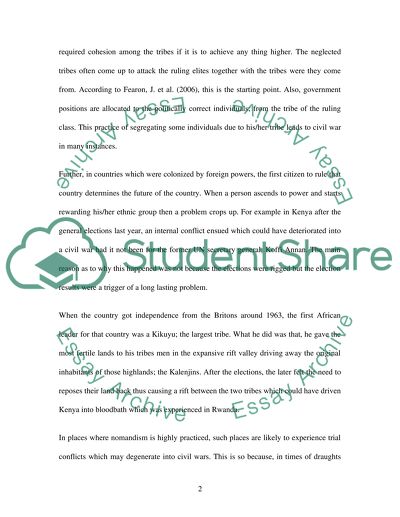Cite this document
(“Is ethnic conflict the most important cause of civil wars Essay”, n.d.)
Is ethnic conflict the most important cause of civil wars Essay. Retrieved from https://studentshare.org/miscellaneous/1544900-is-ethnic-conflict-the-most-important-cause-of-civil-wars
Is ethnic conflict the most important cause of civil wars Essay. Retrieved from https://studentshare.org/miscellaneous/1544900-is-ethnic-conflict-the-most-important-cause-of-civil-wars
(Is Ethnic Conflict the Most Important Cause of Civil Wars Essay)
Is Ethnic Conflict the Most Important Cause of Civil Wars Essay. https://studentshare.org/miscellaneous/1544900-is-ethnic-conflict-the-most-important-cause-of-civil-wars.
Is Ethnic Conflict the Most Important Cause of Civil Wars Essay. https://studentshare.org/miscellaneous/1544900-is-ethnic-conflict-the-most-important-cause-of-civil-wars.
“Is Ethnic Conflict the Most Important Cause of Civil Wars Essay”, n.d. https://studentshare.org/miscellaneous/1544900-is-ethnic-conflict-the-most-important-cause-of-civil-wars.


